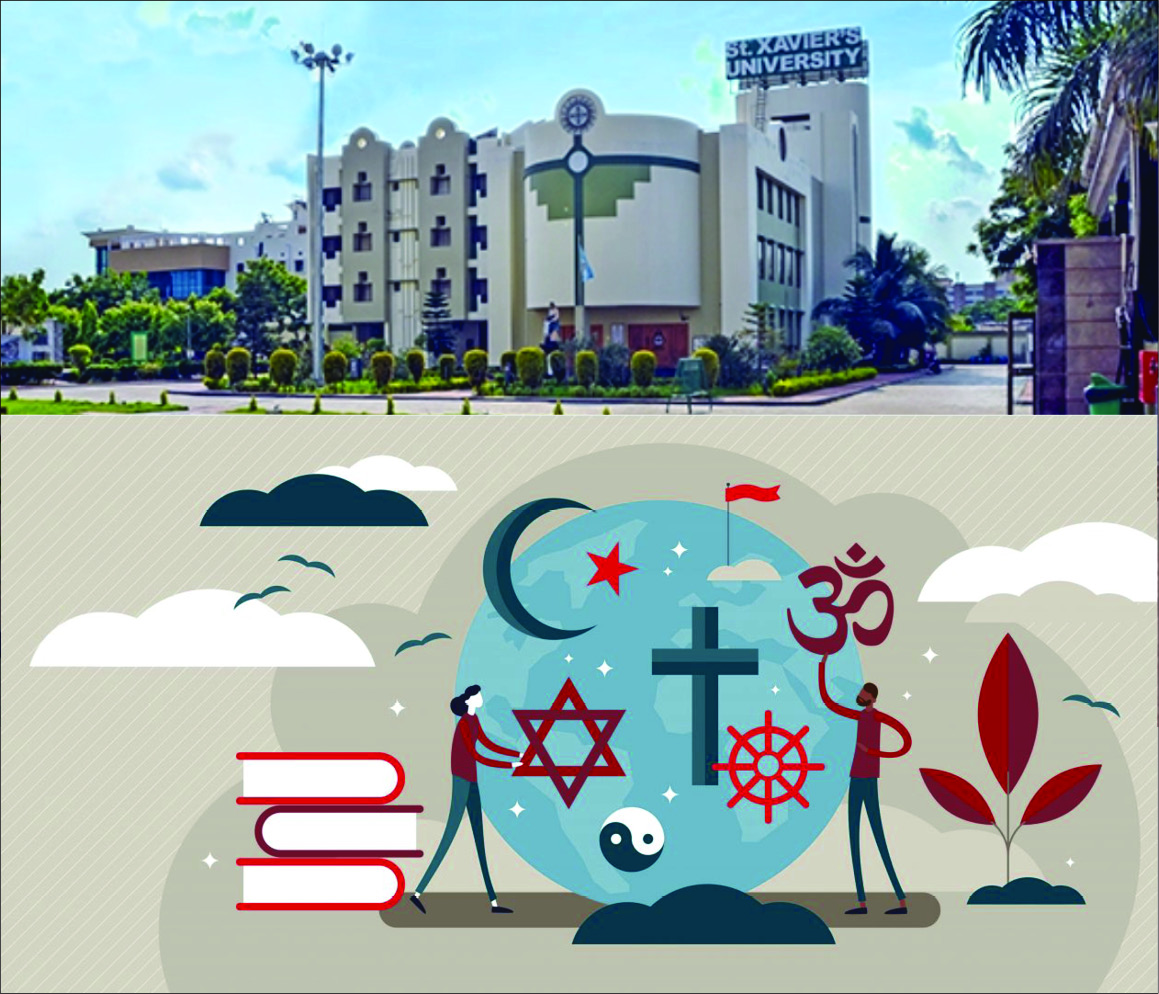Bridging Faiths, Building Peace
In a world increasingly fractured by faith and fear, interreligious studies could emerge as a moral force—promoting empathy, unity, and a sense of global citizenship

Interreligious studies have become an essential part of human development, establishing the increasing need for societal competence on a social and economic level. Understanding religion and studying inter-religious tolerance and significance is crucial for the communal peace of future generations. As the world is threatened by the horrors of barbaric events and offensive wars waged by terrorist groups against humanity, the importance of laws, diversity, and pluralism grows daily to combat terrorism. Religious diversity is a global constant and a daily reality.
Importance of Interreligious Studies
In a world increasingly polarised by religious conflicts, cultural misunderstandings, and rising intolerance, the need for empathy, dialogue, and mutual respect has never been more urgent. As societies grapple with extremism and identity-based violence, education emerges as a powerful tool for healing divisions and building bridges. Recognising this, St. Xavier's University, Kolkata, has pioneered a unique initiative: a dedicated course on Inter-Religious Studies for Global Citizenship. This forward-thinking programme aims to equip students not only with academic insights into the world's major religious traditions but also with the critical skills to engage meaningfully across lines of belief in a progressively interconnected world.
Since its inception in 2017, the course has been a foundation course mandatory for all undergraduate students, irrespective of their stream of study. With the National Education Policy (2020) framework introduced in 2023, the course is now offered as a common value-added course for all undergraduate students, focusing on global citizenship.
A Timely Academic Intervention
The course includes comparative studies of Hinduism, Islam, Christianity, Sikhism, Buddhism, Jainism, and other faith systems, alongside modules on religious pluralism and interfaith dialogue. The initiative reflects the Jesuit institution's long-standing commitment to inclusive education and social harmony. With students from diverse religious and cultural backgrounds, the campus itself serves as a microcosm of India's pluralistic fabric.
What sets this course apart is its emphasis on experiential learning. Students participate in interfaith panels, visit places of worship, and engage in community outreach programmes that promote religious harmony. These assignments allow them to go beyond theoretical understanding and experience the lived realities of faith. St. Xavier's University Kolkata plans to host global scholars and peace activists, encouraging cross-border dialogue.
The Broader Vision: "Global Citizenship"
Integrating global citizenship into this course is not merely thematic; it is foundational to the course's mission of forming socially conscious and ethically grounded individuals prepared to navigate and shape a pluralistic world. Global citizenship bridges religious and cultural divides, encouraging students to view differences as opportunities for dialogue, learning, and mutual enrichment.
The course emphasises ethical responsibility, encouraging students to reflect on religious teachings to address global issues like poverty, inequality, and human rights. This dimension fosters intellectual understanding and moral engagement, enabling learners to become compassionate global citizens who act upon shared values of justice, dignity, and peace.
The course also contributes to interdisciplinary global awareness, recognising religion's role in shaping global narratives, identities, and power structures. Through interreligious studies, students gain a deeper understanding of how religious worldviews interact with global systems, influencing human behavior.
Preparing Students for Leadership
The course equips students with global citizenship and interreligious understanding, preparing them for leadership roles in education, public policy, international development, and community advocacy. By grounding students in both global citizenship and interreligious understanding, the course nurtures a new generation of leaders equipped to build inclusive, ethical, and sustainable communities.
The Jesuit ethos underpinning St. Xavier's University's educational mission resonates deeply with the concept of global citizenship. Jesuit education aims to create morally sound, socially conscious, and intellectually capable individuals who become "men and women for others."
A Model Course for Other Institutions
At a time when communal tensions flare up globally, academic institutions have a moral responsibility to foster understanding. St. Xavier's University, Kolkata, demonstrates how this can be done through a balanced, rigorous, and inclusive curriculum. The course stands as a beacon of transformative education, preparing students for courageous, compassionate global leadership.
Its structure is adaptable and can be contextualised to different geopolitical and religious landscapes. As part of the Global Citizenship Curriculum Project, an initiative of the Task Force on Global Citizenship of the International Association of Jesuit Universities (IAJU), the course has the potential to inspire similar programmes worldwide.
Conclusion
In these troubled times, where identity politics often overshadow humanity's ethics, St. Xavier's University, Kolkata, is leading by example. Its course on Inter-Religious Studies for Global Citizenship is a bold, necessary step toward building a more compassionate, cohesive world. We encourage other universities and colleges to collaborate on similar programmes and develop this course as a model for national adoption.
Fr. John Felix Raj is the Vice Chancellor, and Sovik Mukherjee is an Assistant Professor of Economics in the Faculty of Commerce and Management, both at St. Xavier’s University, Kolkata. Views expressed are personal



